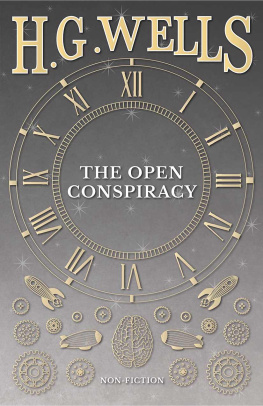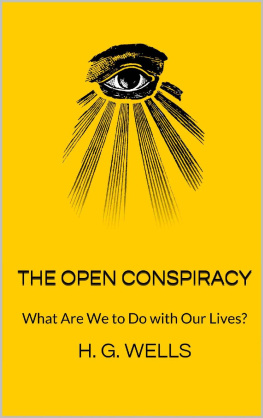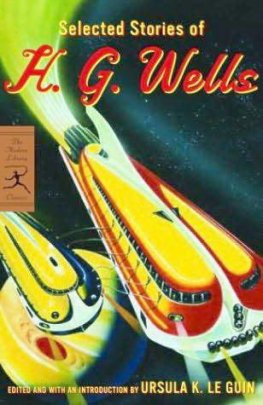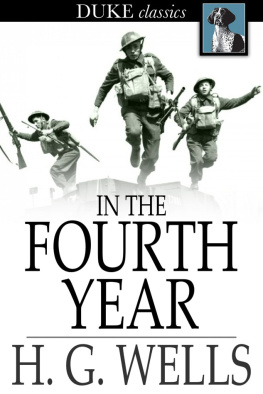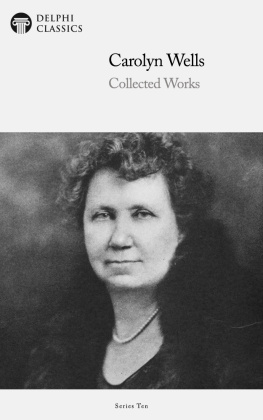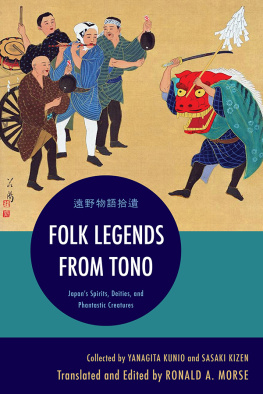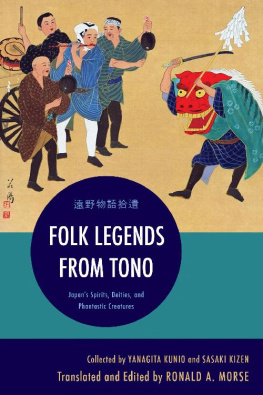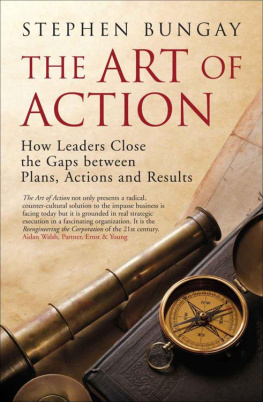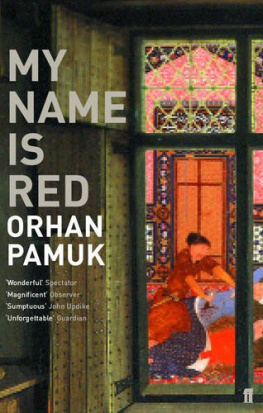H.G. Wells - Tono-Bungay (Modern Library Classics)
Here you can read online H.G. Wells - Tono-Bungay (Modern Library Classics) full text of the book (entire story) in english for free. Download pdf and epub, get meaning, cover and reviews about this ebook. year: 2003, publisher: Modern Library, genre: Art. Description of the work, (preface) as well as reviews are available. Best literature library LitArk.com created for fans of good reading and offers a wide selection of genres:
Romance novel
Science fiction
Adventure
Detective
Science
History
Home and family
Prose
Art
Politics
Computer
Non-fiction
Religion
Business
Children
Humor
Choose a favorite category and find really read worthwhile books. Enjoy immersion in the world of imagination, feel the emotions of the characters or learn something new for yourself, make an fascinating discovery.

Tono-Bungay (Modern Library Classics): summary, description and annotation
We offer to read an annotation, description, summary or preface (depends on what the author of the book "Tono-Bungay (Modern Library Classics)" wrote himself). If you haven't found the necessary information about the book — write in the comments, we will try to find it.
Tono-Bungay (Modern Library Classics) — read online for free the complete book (whole text) full work
Below is the text of the book, divided by pages. System saving the place of the last page read, allows you to conveniently read the book "Tono-Bungay (Modern Library Classics)" online for free, without having to search again every time where you left off. Put a bookmark, and you can go to the page where you finished reading at any time.
Font size:
Interval:
Bookmark:

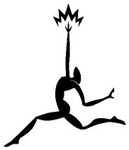
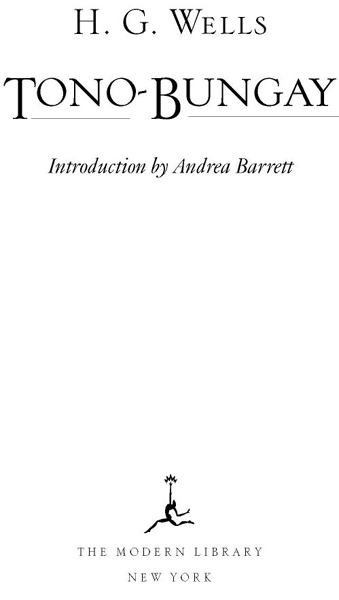
Table of Contents
INTRODUCTION
Andrea Barrett
What, you may ask, is Tono-Bungay? Health and beauty and strength in a bottle, if you believe the advertisements; elixir of hope, fountain of youth. Of course it is a fraud. The inventor of this tonic, Edward Ponderevo, describes its composition thusly to his nephew, George, who passes it to us after carefully deleting the trade secrets:
You see, said my uncle in a slow confidential whisper, with eyes very wide and a creased forehead, its nice because of the (here he mentioned a flavouring matter and an aromatic spirit), its stimulating because of (here he mentioned two very vivid tonics, one with a marked action on the kidney). And the (here he mentioned two other ingredients) makes it pretty intoxicating. Cocks their tails. Then theres (but I touch on the essential secret). And there you are. I got it out of an old book of recipesall except the (here he mentioned the more virulent substance, the one that assails the kidneys), which is my idea. Modern touch! There you are! 1
There we are indeed: the old and the new, mashed into a concoction that is not simply useless but actually harmful. Edward Ponderevo, with Georges help, will grow rich selling it; his company will flourish; so too will the financial empire rising from this dubious foundation. What an excellent time to be a business-man! Its a big time were in, George, Edward reflects with satisfaction. Its a big Progressive On-coming Imperial Time.2
That imperial time is the central subject of this novel, an anatomy of the rise and fall of a great commercial empire that, through its detailed, often brilliant descriptions and powerful imagery, slyly satirizes British imperial policy as a whole. As in Trollopes The Way We Live Now, the insights into class, money, advertising, public relations, and the power of the press still ring horrifyingly true, while certain manipulations of financial reports might have happened yesterday. Consider the three general trading companies set up by Edward. Each, George notes, ended its financial year solvent by selling great holdings of shares to one or other of its sisters, and paying a dividend out of the proceeds.... That was our method of equilibrium at the iridescent climax of the bubble....3
Some novelists might have omitted the juicy details of those transactions, along with the descriptions of the manufacture and sale of the ridiculous tonic, how to build a flying machine, what people wore at a garden party, how an improvident sculptor arranges his bedroom, and much else that makes Tono-Bungay a rich and rewarding portrait of Edwardian life. Virginia Woolf, one of H. G. Wellss fiercest critics, surely would have excised them, although Charles Dickens or Arnold Bennettboth of whom Wells admiredwould have kept them. Wells himself argued ardently for a fiction of inclusion rather than exclusion, trumpeting:
We are going to write about it all. We are going to write about business and finance and politics and precedence and pretentiousness and decorum and indecorum, until a thousand pretences and ten thousand impostures shrivel in the cold, clear air of our elucidations.4
Over the course of his long life (he was born in 1866 and died in 1946, writing with equal engagement about the outbreak of World War I and the dropping of the atomic bomb on Hiroshima), he completed well over a hundred books, including collections of short stories and essays, encyclopedic narratives of world history and economics, textbooks of biology and geology, works of social criticism and analysis, and an engaging memoir, his Experiment inAutobiography. He remains most famous for his scientific romances, among them The Time Machine, The War of the Worlds, and The Islandof Dr. Moreau, which he wrote as a young man and which gave rise to much contemporary science fiction. Yet these arent the works he considered his most important. Wells saw himself chiefly as a serious novelist, and the novel as the best form through which to convey his ideas. The novel, he wrote, is the only medium through which we can discuss the great majority of the problems which are being raised in such bristling multitude by our contemporary social development.... Dealing with most of these questions by a rule or a generalisation is like putting a cordon round a jungle full of the most diversified sort of game. The hunting begins only when you leave the cordon behind you and push into the thickets.... You see now the scope of the claim I am making for the novel; it is to be the social mediator, the vehicle of understanding, the instrument of self-examination, the parade of morals and the exchange of manners, the factory of customs, the criticism of laws and institutions and of social dogmas and ideas.5
In his utilitarian view, the novel was a tool, not an end in itself: exactly the point over which he and Henry James would argue so publicly, and at such great length. (Their letters are wonderfully illuminating regarding their disagreement.)6 Where Wells, eager to teach and change the world, detailed the Ponderevos invention to the extent of taking its name for his book, James avoided even naming the product on which, in The Ambassadors, the Newsomes fortune is based. James in many ways triumphed: His works have entered the canon, whereas Wellss later fiction, which became increasingly didactic and expository, now seems both dated and clumsy. But in the years before the outbreak of World War I, Wells wrote a handful of realistic novels that are truly admirable. Kipps (published in 1905) and The History of Mr. Polly (1910) are nearly perfect comic novels of the genteel poor and their aspirations, rich in memorable characters and highly praised in their own time. Before the quarreling days, James wrote to Wells after reading Kipps that the book has, throughout, such extraordinary life; everyone in it, without exception, and every piece and part of it, is so vivid and sharp and raw.7
Nor was James alone in his high estimation of Wellss early work. Arnold Bennett adored these novels; Conrad so admired them that he dedicated TheSecret Agent to Wells, which favor Wells repaid by satirizing him in Tono-Bungay as a vulgar, cowardly ships captain with a thick foreign accent. (That friendship also cooled.) But for all the compact and delightful pleasures of Kipps and The History ofMr. Polly, they lack the range and depth of his masterpiece, Tono-Bungay (1909).
Theres so much to praise here: The opening chapter, deft and touching, in which the narrator, George Ponderevo, describes his childhood as a housekeepers son on the great estate called Bladesover. The closing chapter, in which all of England passes by in stately cadences. There are the humorous minor characters, as memorable as any Dickens ever createdGeorges aunt Susan, his friend Ewart, the baker Nicodemus Frapp and his circle of impoverished religious fanatics; the astonishing descriptions of people, processes, and places; and a sense of play (think of the chapter titles: The Dawn Comes, and My Uncle Appears in a New Silk Hat) that leavens the darkness. Then there is Edward Ponderevo himselfdear Uncle Teddy, who has about him Teddinessa certain Teddidity. To describe it in any other terms is more difficult. It is nimbleness without grace, and alertness without intelligence. 8
Next pageFont size:
Interval:
Bookmark:
Similar books «Tono-Bungay (Modern Library Classics)»
Look at similar books to Tono-Bungay (Modern Library Classics). We have selected literature similar in name and meaning in the hope of providing readers with more options to find new, interesting, not yet read works.
Discussion, reviews of the book Tono-Bungay (Modern Library Classics) and just readers' own opinions. Leave your comments, write what you think about the work, its meaning or the main characters. Specify what exactly you liked and what you didn't like, and why you think so.

